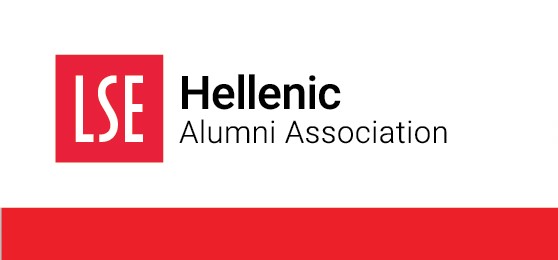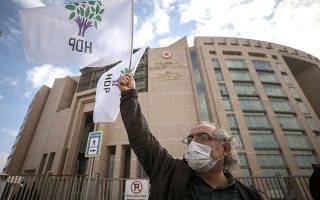LSE Hellenic Alumni hold seminar on ‘ESG in the time of Covid-19’

The future of Greece looks “green,” digital and socially fair, as discussed at the webinar “ESG in the time of Covid-19” held by Hellenic Alumni Association of London School of Economics and Political Sciences
The future of investing and doing business both in Greece and abroad through the lens of the Environmental Social and Governance (ESG) factors and the Sustainable Development Goals (SDGs) was the topic of the online discussion hosted by the Hellenic Alumni Association of London School of Economics and Political Sciences (HAALSE) on Tuesday, March 30.
Representatives from the political, business and academic world focused on a number of issues involving ESG, such as the challenges and opportunities arising from the integration of ESG factors in the strategy of the country and local businesses; the disruption caused by ESG in the way we do business; the standards according to which we will be assessing the performance of a business post-pandemic; green growth; circular economy; and inclusion and diversity.
Dr Vassilis G. Apostolopoulos, Chairman of HAALSE, CEO of Athens Medical Group and Chairman of the Hellenic Association of Entrepreneurs delivered the opening remarks and observed that the pandemic has had a game-changing impact across all layers of life. “Global governance will have to be re-conceptualized and revamped to responds to the realities of the new era. The ways in which firms, governments, international organizations, societies and even families and individuals operate will change forever.” He also noted that “corporate leaders who acted fast in response to the pandemic, placing corporate social responsibility and their patriotic responsibility above all else, will most likely find a warmer embrace by the public in the new era, rewarded for putting health before profits and human life before balance sheets.” Finally, Mr Apostolopoulos pointed out that the concept of ESG has expanded and its importance has exponentially amplified in recent years, with the pandemic playing the role of catalyst and accelerator at the same time. “ESG is emerging as a key part of the compass for the leaders of the new era and its contribution will be fundamental in building better, more sustainable and more balanced business ecosystems,” as he said.
During the discussion that followed panel speakers, moderated by Ms Izabella M. Tsirba, Finance and Capital Markets Lawyer and Legal Advisor, Engagement and Fundraising Officer of HAALSE, focused on the integration of ESG factors across the market, highlighting the remarkable change that is taking place over the past few years with regard to the business purpose of a company. This change has been accelerated by the impact of the Covid-19 pandemic, a real “shock” to the economy and the society, as recognized by panel speakers during the discussion and not just another crisis. The growing awareness of the environmental, social and governance issues has contributed also to that end.
Similar to a new Renaissance, the business model of sustainable development argues that human beings are also central entities, therefore, businesses should not only be concerned with economic profits. As a result, the role of management has become harder and more challenging, as it is not easy to strike a balance between achieving the business targets and financial goals of a company and respecting the rules and principles governing ESG factors.
More specifically, representing the Greek government, H.E. Mr. Yannis Tsakiris, Deputy Minister of Development and Investments, noted that “the implementation in Greece of the European Green Deal Investment Plan, this huge “capital injection,” will help companies engaging in health, green growth, digitalization, research and innovation benefit most.” He also mentioned that according to the government’s plan “the future of Greece will be “green”, digital and socially fair.” Moreover, H.E. Mr Tsakiris underscored how important it is to further support the startup ecosystem in the country, as it creates significant added value.
“The pandemic highlighted the importance of sustainability and social responsibility in making societies and economies more resilient and prosperous in the long run”, as Ms Maria Alexiou, Chair of CSR Hellas and member of the BoD, CSR Europe recognized. She also underlined the fact that the new EU strategy seeks to enhance the implementation of the 17 SDGs without allowing anyone to be left behind; this will require a significant cultural change from “short term profit” to “sustainable value.”
As Dr Ioannis Ioannou, Associate Professor of Strategy and Entrepreneurship, London Business School observed, “sustainability is arguably the largest disruption that the world of business has faced in recent years. The market should not get caught up with terms and labels, CSR, SDG, ESG etc.. What is fundamental is that we focus on the practice/change/transformation on the ground of businesses.”
With regard to NGOs whose activities focus on the environment and sustainability, special emphasis should be given on showing willingness to cooperate on all levels whilst focusing on results, as pointed out by Ms Chloe Laskaridis, Senior member of the Board of Directors, Lampsa Hellenic hotels S.A. and Member of the Board, A.C. Laskaridis Charitable Foundation. More specifically, according to Mrs. Laskaridis, “NGOs focusing on ESG actions are favorably received by both local communities and authorities, but we are still missing an organized linking of the outcome of work in the charitable sector with policies.” On the hotel industry, Ms Laskaridis noted that guests appreciate hotels’ efforts to become more sustainable and environmentally friendly and are happy to give up a little bit of “luxury” if the end-result is helping the environment.
Ms Lilian Nektariou, Franchise Country Director Greece, Cyprus, Malta, Coca-Cola Hellas pointed out that the pandemic fortified the importance of the ESG agenda. She also commented that the corporate world has an obligation to the society to design its business strategy according to the needs of the community in which it operates, to create added value and safeguard a sustainable future for the next generations.
“Sustainable investing is not just a passing trend or fad” as noted by Mr Mark Hempstead, Head of Alternative Investments for Europe, the Middle East and Africa, J.P. Morgan Wealth Management (London). Mr Hempstead also mentioned that “investors believe that integrating ESG factors to a company’s strategy shields the company from a number of corporate risks.” As he pointed out, having a strong ESG framework “is directly in line with how well your company is run and how well you are set up for long term risks.”
Finally, panel speakers agreed that the market needs unified sustainability reporting and assessment standards, similar to the IFRS. The establishment of a “common language” will help significantly investors, as well as companies when assessing sustainability initiatives and strategies, as well as the overall sustainability journeys of companies.
You can watch the webinar “ESG in the time of Covid-19” organized by HAALSE at https://www.youtube.com/watch?v=a1yJiZ8nJi4&t=6040s





